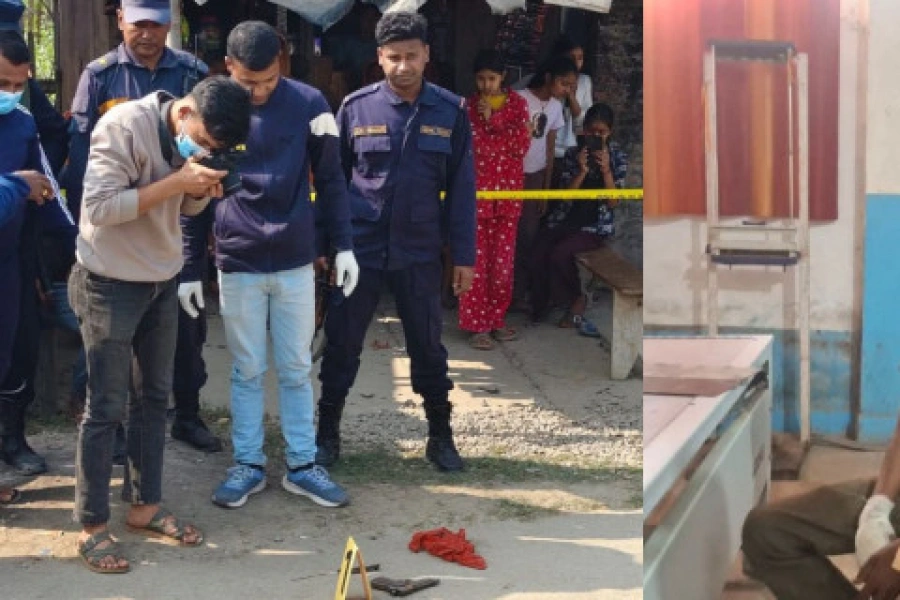ROLPA, May 1: Daily wage earner Rupsari Bista was forced to come to the district headquarters carrying her two small children in search of job nine years ago after abandoned by her husband.
Now she gets Rs 450 per day for nine-hour physical labor. She is the sole breadwinner in her family. She gets no other facilities except the wages. It has been very difficult to afford school education for her children, pay for house rent and manage a two-square of meal.
Jun Kumari Budha, a daily wage earner based in the district headquarters Liwang, is a single parent taking all responsibility for her offspring. She has been taking the sole responsibilities of her children since husband left the family for the second marriage. She pockets Rs 500 per day.
Junsara Budha is another woman labor who had left hometown Mirul 15 years ago in hope of getting a way of living in the district headquarters. In her initial days, she used to get Rs 120 daily, now she receives Rs 500 per day. She decided to toil hard to financially contribute to the family with the realization that sole earnings of her husband who is a migrant worker was not sufficient to address the family needs.
The number of women involved in risky works demanding hard physical labor (workers at the construction sites) and other manual works is high in the district headquarters. But they are discriminated against in manifold ways including in wages and are not paid as their male counterparts who get a higher wage than them for the same nature of work for same hours. Unequal pay is their major concern.
Allo making many Rolpa women entrepreneurs

The workers have complained that they do not get any other facilities except the wages on the work day. They have demanded insurance coverage for the workers as they also come across accidents from time to time.
Rupsari Bista, a woman laborer, said that she had to bear all her medical expenses herself for the treatment of a big cut she suffered in her head in course of work. She had to be admitted to hospital in Nepalgunj for the treatment.
The women laborers have complained that although they have been working despite the risk, the contractors and the employers have discriminated against them in the pay and the work. They said that the wages they get are not commensurate with the market inflation.
"The market price of essential goods is so high and our wages very low in comparison to that. This makes our day-to-day life difficult," Jun Kumari Budha, a woman worker said, adding that they have to go hungry if they do not find work for a long time or fall sick. She said there is unequal pay between men and women skilled workers also.
Woman human rights activist Shree Kumari Roka said it is unfortunate that there is discrimination between male and female workers for the same work even though the constitution states that there shall be no discrimination of any kind.
Roka also lamented that the government has not invested much in increasing the capacity of women laborers despite working for decades.
The wage determination committee has fixed Rs 800 as the daily wage of skilled workers and Rs 420 as that of unskilled workers.
President of Contractors' Association of Nepal, Rolpa district chapter, Man Bahadur Khatri, however, said that they have been paying the workers more than the wages fixed by the committee.
Khatri said that the workers do not get wage as compared to market price as there is a rule that wage of workers should not be increased by more than 10 percent every year.
He said that number of skilled female workers is very less in the district as the female workers have not got opportunity to participate in such training run by Building Division Office every year.
Khatri further said that he would play role to participate female workers in skill-oriented training in days ahead.
A contractor Basant Raj Sharma said that he has been paying Rs 750 to a skilled female worker and Rs 800 to a skilled worker, adding that there was no any discrimination in wage between non-skilled female and male workers.
Right activists said that attention should be given to professional and physical security of workers, who are compelled to do labor in lack of other alternatives to employment. RSS





































